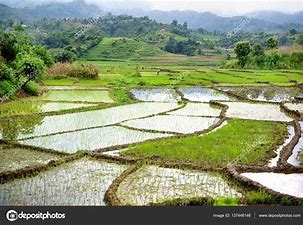Government of Narenda Modi said country had to mitigate rising prices of grain in domestic market
16/09/2022

Brazil and other countries questioned Thursday India’s decision to restrict or ban exports of the product. Several partners showed concern about food security after the announcement. India is the world’s largest rice exporter.
New Delhi announced last week a ban on exports of broken rice, a second-rate product used for animal feed. As it is a cheaper alternative, several countries, especially from Africa, buy it for human consumption. India also restricted exports of several types of the product, including white and brown rice, but excluded basmati rice from the measure.
India says it was forced to restrict exports to mitigate domestic price hikes driven by falling production – which reached the lowest level in recent times. India sells rice to more than 150 countries. Last year, the nation exported 21.5 million tonnes of grain, a volume that is greater than the sum of shipments of the other four largest exporters – Thailand, Vietnam, Pakistan, and the United States.
At a regular meeting of the World Trade Organization Committee on Agriculture, several countries responded to India’s move. The U.S. and the European Union asked for an explanation and questioned why, so far, the Indian government has not even informed the WTO about the measure.
Brazil also mentioned the Indian restrictions and called on countries to go in the other direction by adopting measures that ease trade and give up trade-distorting policies. “This is essential to ensure growth, development, environmental protection, and food security around the world,” said a Brazilian representative.
Senegal, a major rice importer, made the toughest intervention. According to the country’s government, India’s decision threatens Senegal’s food security and also that of other countries, which have relied on trade with the Indians. It seems clear that several importers of broken rice will have no way to cover the 20% rise in costs.
The Indian representative said he didn’t understand why some countries complain when India gives subsidies for production and also complain when the country doesn’t export. The argument irritated some delegations.
The problem, as certain negotiators note, is that India distorts trade with huge subsidies, creates expectations in the market, then distorts it again by not delivering to several countries. China, the largest buyer of Indian broken rice, has kept quiet in the WTO discussion.
*By Assis Moreira — Geneva
Source: Valor International
